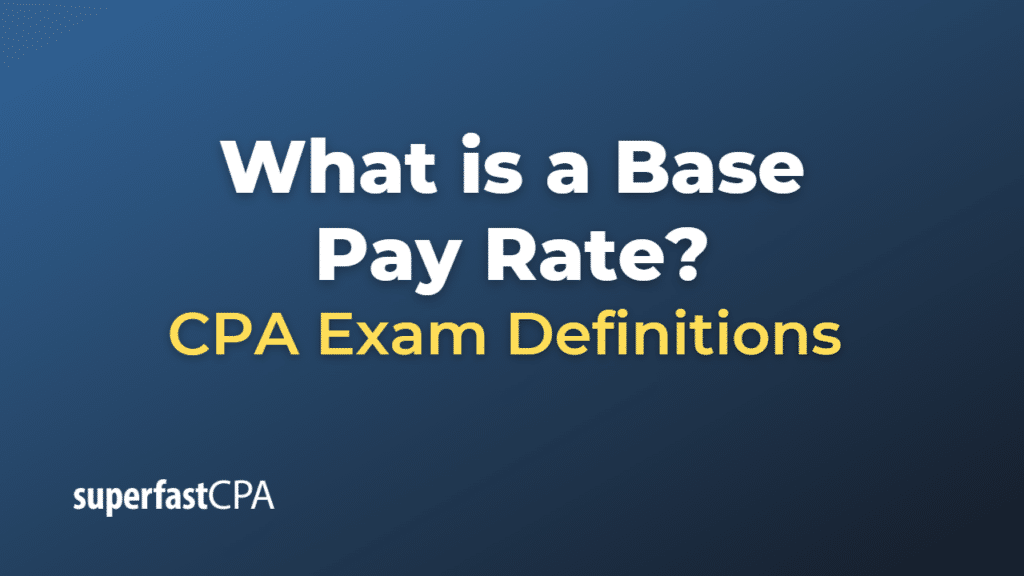Base Pay Rate
A base pay rate is the initial amount of compensation an employee receives for performing their job, excluding any additional payments such as bonuses, commissions, overtime pay, or other benefits. The base pay rate is typically expressed as an hourly wage, a monthly salary, or an annual salary, depending on the nature of the employment arrangement and the specific industry.
The base pay rate serves as the foundation for an employee’s overall compensation package, and it is usually determined based on factors such as the employee’s job responsibilities, experience, education, skill level, and the prevailing market rates for similar positions within the industry or geographic region.
Employers often use the base pay rate as a starting point for negotiations with prospective employees and as a benchmark for comparing compensation levels with other companies or industries. Additionally, the base pay rate may be subject to periodic adjustments or increases based on factors such as performance evaluations, promotions, or cost-of-living adjustments.
It is essential for both employers and employees to have a clear understanding of the base pay rate, as it affects other aspects of compensation, such as retirement contributions, tax withholdings, and overtime calculations.
Example of a Base Pay Rate
Let’s consider a fictional example involving two job candidates, Alice and Bob, who have been offered positions as software engineers at a technology company.
The company has determined the base pay rate for the software engineer position to be $80,000 per year. This base pay rate has been established after considering factors such as job responsibilities, required education and experience, and the prevailing market rates for similar positions in the industry and geographic region.
Alice has a bachelor’s degree in computer science and two years of relevant work experience. After considering her qualifications and the base pay rate for the position, the company offers Alice an annual salary of $80,000, which is in line with the established base pay rate.
Bob, on the other hand, has a master’s degree in computer science and five years of relevant work experience. Given his higher level of education and experience, the company decides to offer Bob a higher annual salary of $95,000, which is above the base pay rate for the position.
In both cases, the base pay rate serves as a starting point for determining the appropriate compensation for the job candidates. The company may also offer additional forms of compensation, such as bonuses, stock options, or benefits packages, which are not included in the base pay rate.
This example illustrates the concept of a base pay rate in the context of employee compensation and shows how it can be used as a foundation for determining an individual’s overall salary based on their qualifications, experience, and other factors.













